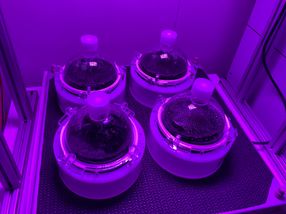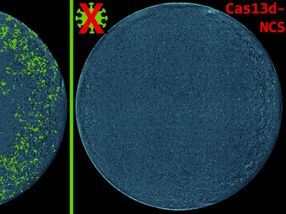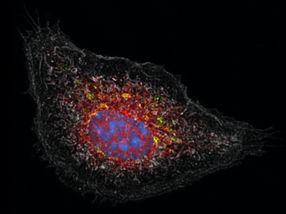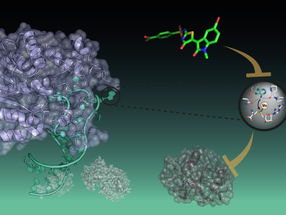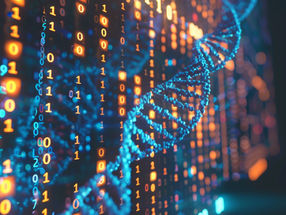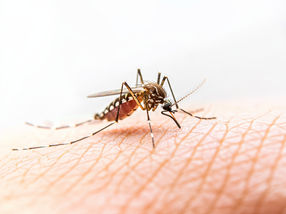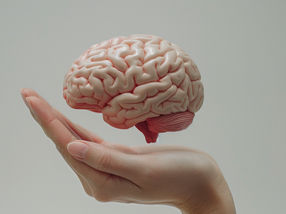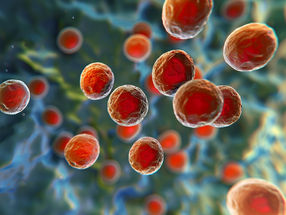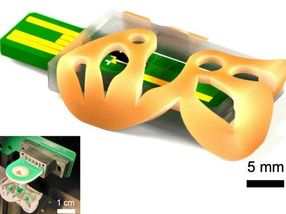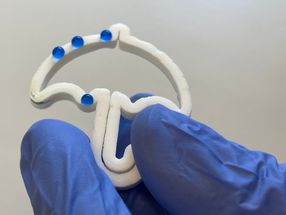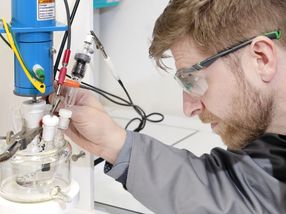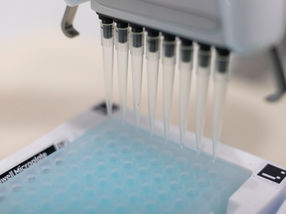Proteins as an early warning system for type 1 diabetes?
Certain proteins in the blood of children can predict incipient type 1 diabetes, even before the first symptoms appear. A team of scientists at the Helmholtz Zentrum München, partners in the German Center for Diabetes Research (DZD), reported these findings.
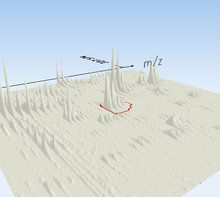
The presence of certain proteins in blood samples can predict incipient type 1 diabetes. The researchers identify these in their measurements using so-called peptide peaks (see selection in red).
Helmholtz Zentrum München
The work was based on two large studies that are intended to explain the mechanisms behind the development of type 1 diabetes (BABYDIAB and BABYDIET*). The study participants are children who have a first-degree relative with type 1 diabetes and who consequently have an increased risk of developing the disease due to the familial predisposition. This autoimmune process does not develop from one day to the next, however: Often the young patients go through longer asymptomatic preliminary stages that see the formation of the first antibodies against the child's own insulin-producing cells in the pancreas; these are the so-called autoantibodies. Biomarkers that indicate whether and when this is the case and how quickly the clinical symptoms will appear could significantly improve the treatment of patients at-risk.
A team of scientists, led by Dr. Stefanie Hauck, head of the Research Unit Protein Science and the Core Facility Proteomics, and Prof. Dr. Anette-G. Ziegler, Director of the Institute of Diabetes Research (IDF) at the Helmholtz Zentrum München, analyzed blood samples from 30 children with autoantibodies who had developed type 1 diabetes either very rapidly or with a very long delay. The researchers compared the data with data on children who displayed neither autoantibodies nor diabetes symptoms. In a second step with samples from another 140 children, the researchers confirmed the protein composition differences that they found in this approach.
New biomarkers for diagnosis
"Altogether, we were able to identify 41 peptides** from 26 proteins that distinguish children with autoantibodies from those without," reports Dr. Christine von Toerne, a scientist in the Research Unit Protein Science who shared first authorship of the work with Michael Laimighofer, a doctoral candidate in Jan Krumsiek's junior research group at the Institute of Computational Biology. Striking in their evaluations: A large number of these proteins are associated with lipid metabolism. "Two peptides -- from the proteins apolipoprotein M and apolipoprotein C-IV -- were particularly conspicuous and were especially differently expressed in the two groups," von Toerne adds. In autoantibody-positive children, it was furthermore possible to reach a better estimate of the speed of the diabetes development using the peptide concentrations of three proteins (hepatocyte growth factor activator, complement factor H and ceruloplasmin) in combination with the age of the particular child.
The researchers are confident that the protein signatures they have discovered will be helpful as biomarkers for future diagnostics. "The progression of type 1 diabetes into a clinical disease takes place over a period of time that varies from individual to individual and that at this time is insufficiently predictable," explains Prof. Ziegler. "The biomarkers that we have identified allow a more precise classification of this presymptomatic stage and they are relatively simple to acquire from blood samples."
Original publication
Other news from the department science

Get the life science industry in your inbox
From now on, don't miss a thing: Our newsletter for biotechnology, pharma and life sciences brings you up to date every Tuesday and Thursday. The latest industry news, product highlights and innovations - compact and easy to understand in your inbox. Researched by us so you don't have to.
Most read news
More news from our other portals
See the theme worlds for related content
Topic world Antibodies
Antibodies are specialized molecules of our immune system that can specifically recognize and neutralize pathogens or foreign substances. Antibody research in biotech and pharma has recognized this natural defense potential and is working intensively to make it therapeutically useful. From monoclonal antibodies used against cancer or autoimmune diseases to antibody-drug conjugates that specifically transport drugs to disease cells - the possibilities are enormous

Topic world Antibodies
Antibodies are specialized molecules of our immune system that can specifically recognize and neutralize pathogens or foreign substances. Antibody research in biotech and pharma has recognized this natural defense potential and is working intensively to make it therapeutically useful. From monoclonal antibodies used against cancer or autoimmune diseases to antibody-drug conjugates that specifically transport drugs to disease cells - the possibilities are enormous
Topic world Diagnostics
Diagnostics is at the heart of modern medicine and forms a crucial interface between research and patient care in the biotech and pharmaceutical industries. It not only enables early detection and monitoring of disease, but also plays a central role in individualized medicine by enabling targeted therapies based on an individual's genetic and molecular signature.

Topic world Diagnostics
Diagnostics is at the heart of modern medicine and forms a crucial interface between research and patient care in the biotech and pharmaceutical industries. It not only enables early detection and monitoring of disease, but also plays a central role in individualized medicine by enabling targeted therapies based on an individual's genetic and molecular signature.

